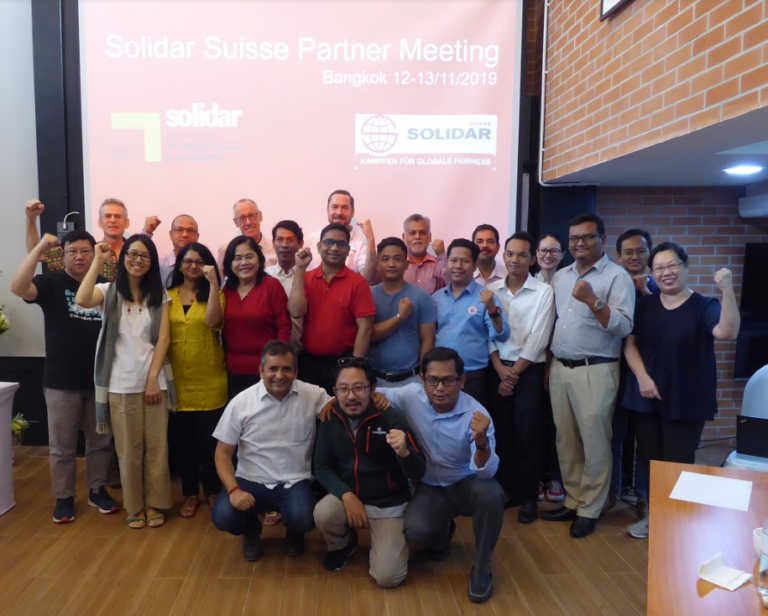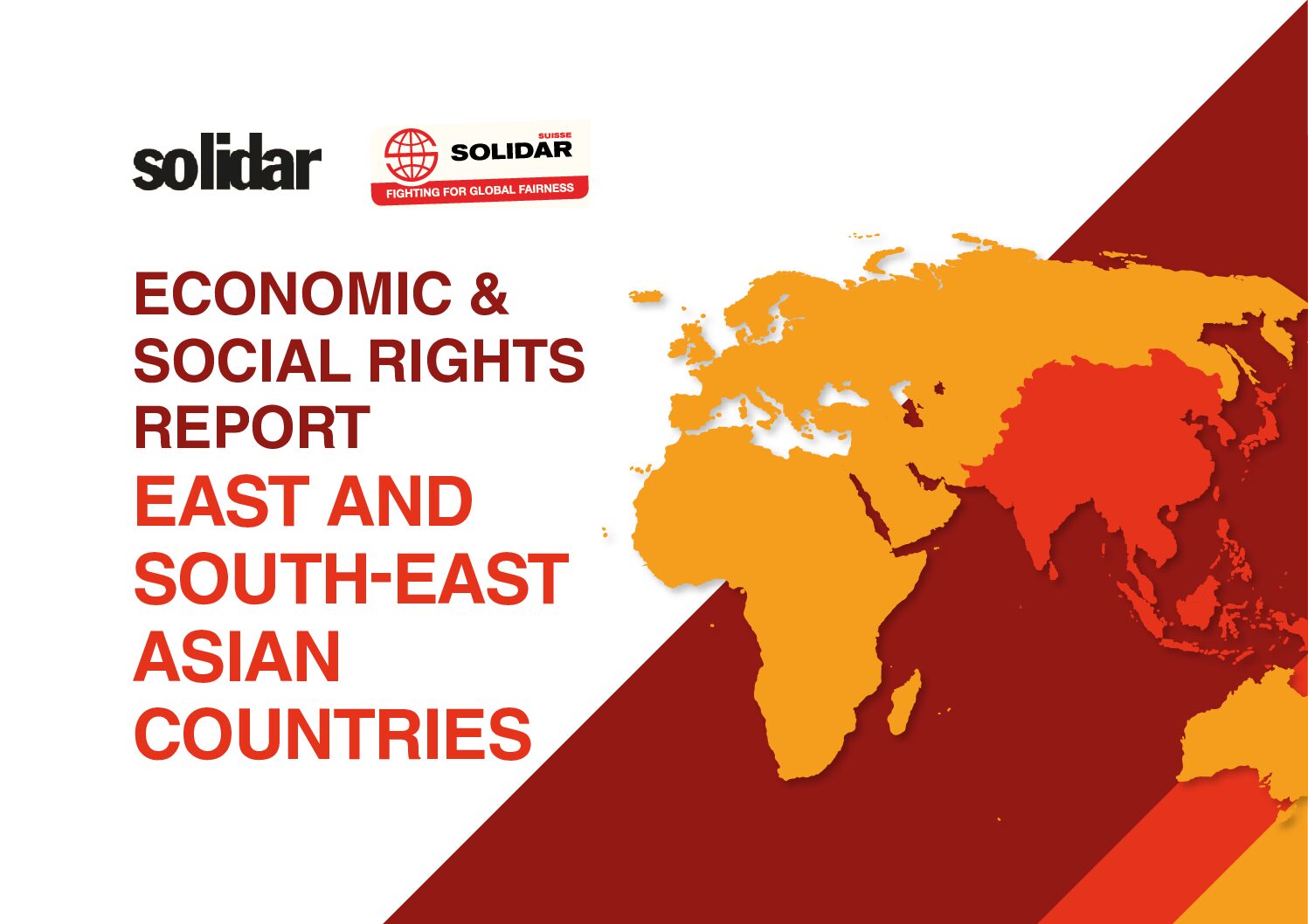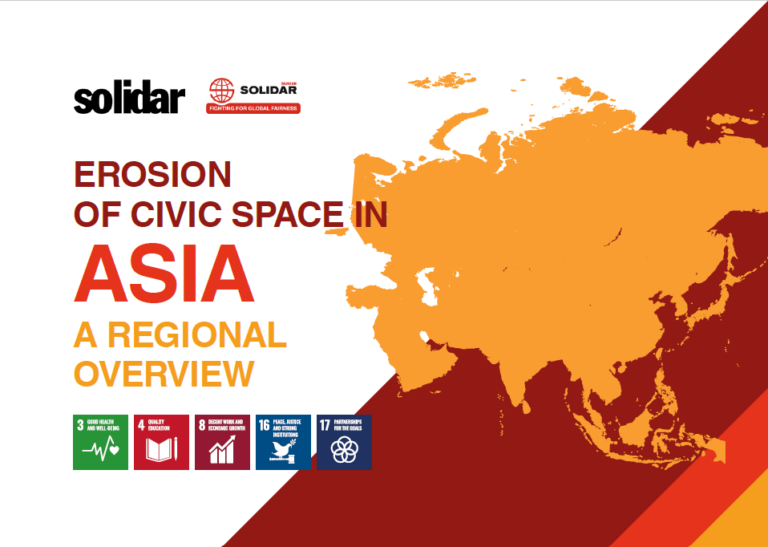Civil Society TOWARDS enabling space: Views from South-East ASIA
The EU is currently reviewing its Thematic Programme on Civil Society Organisations. SOLIDAR participated in the Consultation organised by INTPA on the 10th of July, and expressed its support for the programme to keep its strong focus on enabling environment for civil society. As more and more CSOs and independent, democratic and representative trade unions are under attack and their existence is endangered, countering shrinking space shall be the focus of the programme.
| Why we need the EU to keep prioritising civic space? Because the legitimacy of CSOs is being undermined, and those receiving foreign aid are being scrutinized or even declared “foreign agents”. The situation is degrading quickly in several countries of Latin America (e. g. El Salvador, Guatemala), North Africa and Middle East, Sub-Saharan Africa (e. g. Senegal, Zimbabwe) and Asia (Cambodia, Myanmar, etc.). Moreover, certain population’s groups and their organisations are particularly exposed to repression (for example LGBTQI+ organisations in Ghana, Uganda and several other countries). |
Which fine-tuning of the programme are needed to reach this goal?
In its Regional Exchange, the SOLIDAR Southeast Asia Network of Members and Partners gathered and discussed on international funding for CSOs and Trade Unions, its current challenges, and possible strategies to strengthen CSOs and ensure an enabling civic and democratic space for them to act and operate freely and safely.
Firstly, as civic space shrinks, the sustainability and diversity of civil society is undermined, and it is essential that international support is not reduced to a limited number of actors or organisations who are bigger or adapt their mandate to fit with governments’ authoritarian policies. Secondly, international supporters must create funding pathways that are accessible to a diverse range of grassroots CSOs and support their priorities, in particular feminist organisations, independent and representative labour movement organisations and migrant workers organisations. Moreover, funders shall rethink the design of funding and equip themselves to operate when space is shrinking.
To effectively support civil society development, international funding mechanisms must:
- Ensure Sustainability and Continuity: funding priorities change across years challenging CSOs sustainability, consistency, effectiveness and investment in staff development. Long term projects and core funding is necessary for movements’ building which requires long term strategies. The support should focus on relationship and trust building, to reinforce strategies of CSOs in shrinking spaces where donors’ eligibility criteria cannot be fulfilled.
- Foresee Emergency Solidarity Mechanisms to support independent, democratic and representative Trade Unions and civil society organisations when they are under attack (for example to provide legal support, sustain families, psychosocial support, relocation support) and their funds frozen. Programs shall foresee that a percentage of their budget could be used for solidarity support.
- Be Flexible and Needs’ Based: we need responsive and flexible funding based on co-design from grassroot organisations, which must be adaptable to changing contexts during implementation. More particularly, there is the need for less ‘reports-demanding’ small grants for small emerging groups and grassroots organisations (e. g. youth led organisations); and a willingness to engage with grassroots groups who are not organised in traditional forms such as unregistered organisations and social movements.
- Reinforce international CSOs Networking: International programmes at national, regional and global level, should reinforce the partnership between local CSOs in Southeast Asia and other sister organisations (e. g. from Europe) to nurture international solidarity, cooperation, mutual learning and networking. When it comes to global programmes, international support for multi-actors’ networks for global advocacy and campaigning could be a very effective tool (e. g. the anti-asbestos campaign targeting the REACH convention).
The current Mid-Term Review can be an opportunity for the European Commission to strengthen actions to counter shrinking space and to promote an enabling environment for independent CSOs.





